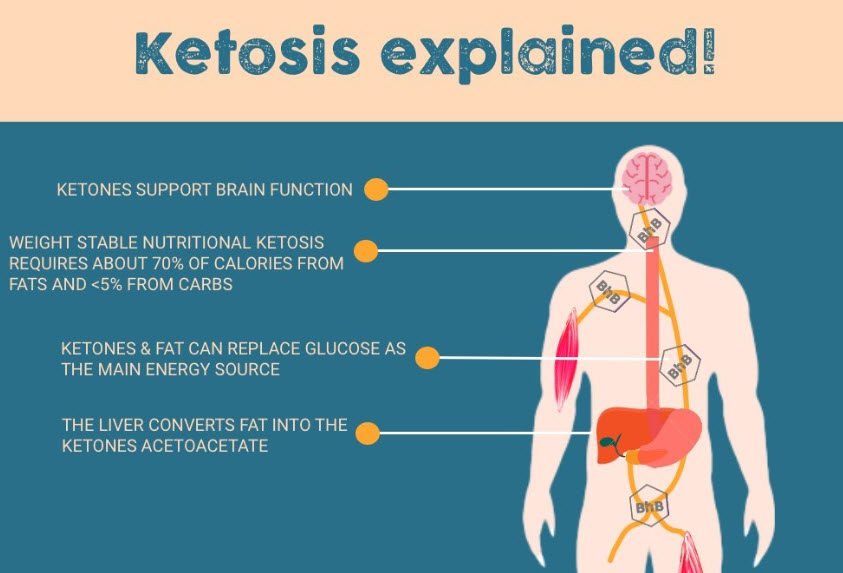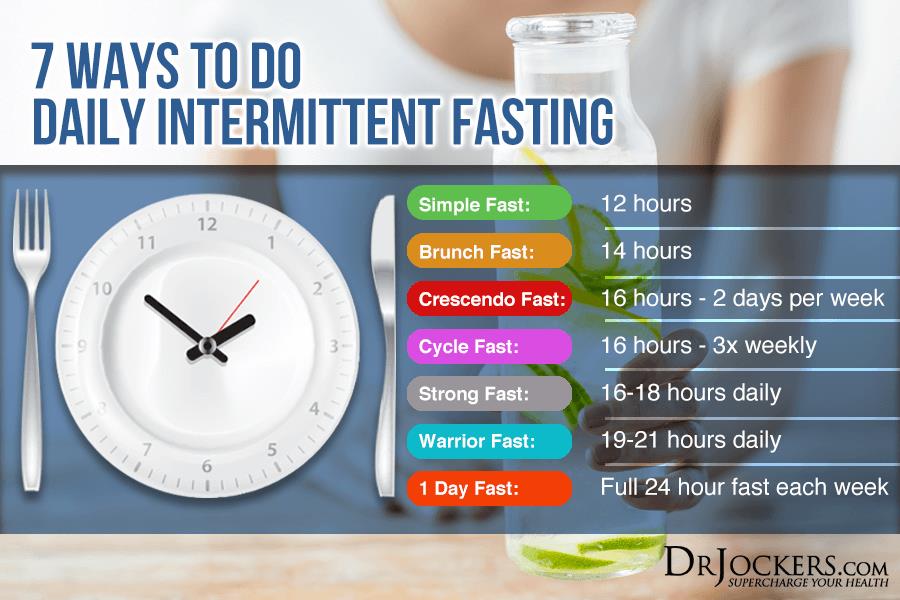
Intermittent fasting and ketosis are metabolic states that can promote fat loss, improve insulin sensitivity and boost your health. However, it’s important to note that intermittent fasting is not suitable for everyone.
For example, it may be dangerous for people with diabetes and eating disorders. It can also lead to negative symptoms such as shakiness, fatigue and heart palpitations.
Ketosis is a metabolic state
Ketosis is a metabolic state that occurs when your body uses fat stores for energy instead of blood sugar (glucose). This can occur after eating a low-carb, high-fat diet or when you fast.
When your body is in ketosis, it breaks down fat and produces a compound called ketones or ketone bodies. These fatty acids can provide your body with energy for many hours.
This metabolic state is considered safe, but it can also be dangerous. It can lead to a condition known as ketoacidosis, which is when ketone levels in the blood become too high and poison your body.
To prevent ketoacidosis, you need to follow a healthy, balanced diet and exercise regularly. It's important to drink plenty of water and get enough electrolytes, which can help keep your ketone levels in check.
Ketosis is induced by fasting
Intermittent fasting, which is a lifestyle practice that entails periods of time without food or significant calorie reduction, has been shown to have a number of benefits, including weight loss. It can also help with diabetes and metabolic syndrome, improving insulin sensitivity and increasing energy levels.
One of the major benefits attributed to intermittent fasting is that it can induce ketosis in the body. This happens when the blood glucose level drops low enough to stimulate ketone production in the liver, causing it to burn fat instead of carbohydrate for fuel.
Ketosis also reduces inflammation, increases energy levels, and improves mental performance. It can also be useful in treating type 2 diabetes and other metabolic conditions, as it helps to reduce blood sugar and lipid levels. It may also be beneficial for athletes, as it has been shown to enhance muscle mass and reduce body fat.
Ketosis is a result of fasting
Intermittent fasting causes the body to burn fat for energy instead of glucose, a type of sugar. It also reduces inflammation and decreases appetite by lowering the hormone ghrelin.
People who are trying to lose weight, reduce inflammation and improve their overall health often use ketosis as part of a low-carb diet or intermittent fasting plan. It’s important to note that not all people can achieve ketosis by following a strict low-carb diet.
Ketosis is induced when the body doesn’t get enough carbohydrates to fuel its cells. This happens when the body depletes its glycogen stores (carbohydrates in your muscles and liver) and begins burning fat as a main source of fuel.
Your blood ketone levels rise when you go into ketosis, which is normal. But, if your levels are too high, you may experience symptoms of ketoacidosis, which can be dangerous for people with diabetes.
Ketosis is a metabolic condition
Ketosis is a metabolic condition in which your body begins to burn fat instead of carbohydrates for energy. It can occur when you fast, or by following a ketogenic diet, which limits carb intake and elevates your insulin levels to put your body into a state of ketosis.
Ketones are produced in the liver and can cross the blood-brain barrier, providing a different source of fuel for your brain than glucose. They can also increase adenosine triphosphate, or ATP, in the body, and can help reduce neuronal loss and brain injury in animal models of stroke and epilepsy.
However, ketosis can be a dangerous situation for people with diabetes who don't produce enough insulin. This condition, known as diabetic ketoacidosis (DKA), can cause your ketone levels to rise too high and make your blood acidic.
Anyone with these symptoms should see a doctor immediately. Treatment usually includes insulin, fluid replacement and electrolyte replacement. This can prevent or reverse DKA and reduce the chances of death from ketoacidosis.
Frequently Asked Questions
Can I drink water if I am intermittent fasting?
Yes, water is possible while intermittent fasting. A fast helps maintain your body balance. It is important to keep hydrated. If you are fasting for extended periods, some vitamins and minerals may be lost through sweat or urine. It is therefore important to stay hydrated. Water aids in detoxification and digestion. It is vital to maintain a healthy body during intermittent fasting. This should not be overlooked!
What weight loss can you expect to see in one week of intermittent fasting?
You might be wondering how much weight you should lose during your weekly intermittent fasting cycle. This requires thoughtful reflection.
Balance is the key. To set too high goals can lead burnout and injury. Consider lifestyle factors like adequate sleep, hydration, and nutrition when planning your weight loss goals. Although counting calories is a useful tool, it should not be the only focus of your plan.
Be aware of the realistic results. Losing more weight than 1-2 kilograms per day can cause strain on the body. However, trying to lose less weight could have minimal to no visible results. Measurements of the body are a better way to track progress than just watching the scales change.
Talk with a professional dietitian to get additional support throughout your journey. To ensure your goal is safe, achievable, and sustainable, it's a good idea to get an objective opinion.
What science says about intermittent fasting?
Discovering science's benefits of intermittent fasting can help us make better lifestyle choices. Intermittent fasting means that you eat meals during a specified time and avoid eating for the remainder. Research shows that proper fasting can improve cognitive performance and metabolic health.
Intermittent fasting is a way to unravel how it works. Intermittent fasting induces a change of metabolism by reducing sugar levels and encouraging cells turn to fat as primary energy source. It helps with weight loss by burning stored fat rather than relying on food that has been eaten recently for energy. This helps to preserve normal metabolic function.
New research on intermittent fasting has shown that it could promote autophagy*, which may have anti-aging benefits. Autophagy literally means "self eating" and is an essential cell process that recycles unused or broken proteins to maintain healthy cells. While more study needs to be conducted on this potential benefit among humans, what we know so far looks promising!
Intermittent fasting appears to have positive health effects. However, it's a good idea not to change your lifestyle without consulting your physician. Healthy modifications should be slowly made. A balance should be achieved between your diet and your activity levels. Talk to an expert to learn how intermittent fasting may work for you.
How can you do intermittent fasting with beginners?
It can be daunting to begin intermittent fasting. You can start a successful journey to intermittent fasting by taking the right steps.
First, pick the type and duration of fasting that interests you. There are three main types of intermittent fasting. They are time-restricted, 16/8, and 5:2. The 16/8 method is a time-restricted fast that restricts your eating habits to certain hours per day. While the 16/8 means you can eat meals in a short 8-hour period and skip meals the rest of the day, the 16/8 way involves eating meals only within those hours. Lastly, the 5:2 diet consists of two non-consecutive days of calorie restriction every week, with normal eating for the remaining days.
Second, make sure to stock up on nutritious foods that can be made quickly and are easy to eat when hungry. This includes protein-rich foods such as eggs and beans; healthy fats from nuts, seeds and olive oils; high fiber carbohydrates such quinoa or bulgur wheat; and a wide variety of fresh fruits or vegetables to provide your daily doses vitamins and minerals.
When you plan your meals, think about how you will manage social pressure while out with family or friends. Self-control is crucial when living an intermittent fast lifestyle. Flexibility is essential in staying focused. You should incorporate sweet spot foods that are both satisfying and not restrictive enough to undo the progress made in the last few months.
To keep your motivation high, you should also keep track of your results. Keep an eye on your body weight, measurements around your waistline, hips and other areas. Don't forget about rewarding yourself when you achieve your goals.
Can I eat food even if I am intermittently fasting?
For a successful fast, it is important to nourish your body by eating the right food. You may believe you can eat what you like and still get the benefits of intermittent fasting, but you should always follow the rules and restrictions for your specific fasting method.
You need to be aware of what you can and cannot eat depending on your diet. While some followers of intermittent fasting adhere to more strict protocols than others, the general rule is only to consume foods during your designated feeding window.
Remember that nutritionally-dense snacks containing healthy fats and proteins are always a great option, as they will help keep hunger pangs at bay throughout your fasting period. You should not approach calorie restriction with an all-or nothing mentality. Even if you make mistakes from time to time, it will not stop you from making progress.
Moreover, many benefit from recording their meals so they can stay mindful of what they're consuming -- enabling them to make healthier decisions no matter when their feeding window begins or ends. Unhealthy processed foods should be avoided as much as possible to maximize the potential of intermittent fasting for long-term success.
What should I eat to lose weight quickly while practicing intermittent fasting?
Strategistically thinking is essential to creating a diet that works. If you want to use intermittent fasting while also losing weight quickly, you must ensure the types of food, and the amount of them, are in sync with your fitness goals. This means that you should not eat too much or indulge in processed foods.
Proteins are the key to successful intermittent fasting weight loss. Aim for lean proteins like chicken, salmon, or ground turkey packed with muscle-burning amino acids plus plenty of filling fibre. You will feel fuller and more satisfied if you eat protein than empty carbs. Next up are high-fiber vegetables like leafy greens and cruciferous veggies that not only will fill you up but also contain essential vitamins and minerals such as magnesium, vitamins C and K, beta carotene, and potassium that fuel your cells. Complex carbs such as oats and rice can be added to meals to give you more energy for your workouts. It also regulates blood sugar so that you don't feel overwhelmed when you finish eating.
Don't forget to eat healthy fats in moderation. Nutrient-rich seeds like sunflower seeds and chia seeds provide good amounts of MUFA & PUFA (Monounsaturated fatty acids & Polyunsaturated fatty acids), which are good for overall health and wellness, helping reduce cholesterol levels and keep your hair and skin looking healthy and full. Brocolli, which is rich in nutrients, contains iron, calcium, magnesium, iron, and many other micronutrients.
By doing so, you can easily create a well-balanced keto diet plan within the period of intermittent fasting that helps curb hunger cravings -without compromising nutrition needs!
Who should not do intermittent fasting?
Intermittent fasting should be understood by everyone. Intermittent fasting has many health benefits, but may not be appropriate for everyone.
Intense fasting should be avoided by pregnant women and people who want to conceive. There isn't enough evidence to determine whether it is safe during pregnancy and/or conception. People who are recovering from an eating disorder, or have trouble eating properly might find that restrictive eating patterns can trigger unhealthy behaviors.
You might also be taking insulin, hypoglycemia, or Type 1 diabetes medication. You should consult your doctor before beginning intermittent fasting to avoid any low blood sugar risks. Finally, people who exercise regularly may wish to try short-term (e.g. 12-hour) fasting rather than the 16/8 approach of most traditional forms.
Anyone considering an intermittent fasting program should seek advice from a doctor or a nutritionist to determine how their body will respond to this type of nutrition timing strategy.
Statistics
- IF participants) IF resulted in weight loss, ranging from 0.8% to 13.0% of baseline body weight (Table 1). (ncbi.nlm.nih.gov)
- When diet composition was controlled, most protocols were consistent with Health Canada and American Heart Association guidelines: 55% carbohydrates, 20% fat, and 25% protein. (ncbi.nlm.nih.gov)
- Fat consumption was examined in 1 study, which compared dietary fat intake of 45% versus 25% at the expense of carbohydrate intake. (ncbi.nlm.nih.gov)
- The rigor of fasting also varied, with several studies allowing 25% of regular caloric consumption during fasting periods. (ncbi.nlm.nih.gov)
External Links
ncbi.nlm.nih.gov
- Intermittent energy restriction helps obese men lose weight: the MATADOR research - PubMed
- INTERMITTENT FASTING AND HUMAN METABOLIC HEALTH - PMC
academic.oup.com
- Nutrition Reviews
- Study of the Effects of an Intermittent Calorie-restricted diet on Type 2 Diabetes Remission: Randomized Controlled Trial
sciencedirect.com
- Influence of short-term repeated fasting on the longevity of female (NZBxNZW)F1 mice - ScienceDirect
doi.org
- Nutrients
- 24-Hour Fasting With Diabetes: guide for physicians advising patients about medication adjustments prior to religious observances or outpatient surgical procedures - Grajower – 2011 - Diabetes/Metabolism Reviews and Research - Wiley Online Library
How To
Is Intermittent Fasting Right for Me? Factors to Be Consider
Even though you have heard the best advice, it can be daunting to contemplate intermittent fasting. It's important you look at all the factors that affect fasting in order to find what is most effective for your particular situation.
First, it is important to understand the context for intermittent fasting. This involves reducing calories on specific days. This does not mean you have to stop eating food. It is about timing and selecting the right meals to reduce calories and meet your nutritional needs. This, when combined with good nutrition and exercise can have profound health benefits.
Another important factor in starting intermittent fasting is lifestyle. It is important to consider the goals and timeframe of each person to determine if they are able to dedicate time to learning how to adjust their lifestyle to achieve optimal results. In addition, it's also important for individuals to evaluate their current abilities--would handling an unfamiliar eating schedule severely disrupt or interfere?
Before starting a cycle, it is important to consider the type of fast you are using. Some examples include alternate-day fasting (500-600 calories twice per week), 5:2: 500-600 calories twice a week, and continuous Energy Restriction (25-50%). This reduces your daily calorie intake by approximately 25%-50%. It could be one large meal, or several smaller meals per day depending on how busy one is. Before you start any intermittent fasting, consult your primary care physician or registered dietian. They can help you assess any medical conditions, medications, or other issues.
Intermittent fasting can help you improve your health and lose weight. But it's important that you understand all the factors that affect whether it's right to do it. Before you start, consider your lifestyle, goals, commitments, and consult with a registered dietitian or primary care physician for advice. If you are committed and have the right planning, intermittent fasting can help you achieve your health goals.
Resources:
 |
What are BENEFITS of Intermittent Fasting?Some research suggests that intermittent fasting may be more beneficial than other diets for reducing inflammation and improving conditions associated with |
 |
[Doctorly Unhinged - EP1] Ozempic Woes, DEBUNKING Intermittent Fasting, and the DANGERS of ManicuresSUBSCRIBE TO OUR PODCAST! https://doctorly.podlink.to/unhinged Is this trending medication that’s been touted to cause dramatic weight loss changing |
 |
The Good Life: Intermittent fasting: Ideal for weight loss?We decode the hype around one of the most popular eating methods for weight loss. Is intermittent fasting for everyone? #thegoodlife #intermittentfasting |
 |
Intermittent Fasting: A Two-Month Experiment. Does It Work? | Talking Point | Full EpisodeAfter drinking sugar-laden bubble tea three times a week for a month for an earlier Talking Point episode, host Steve Chia is ready to lose the weight he |
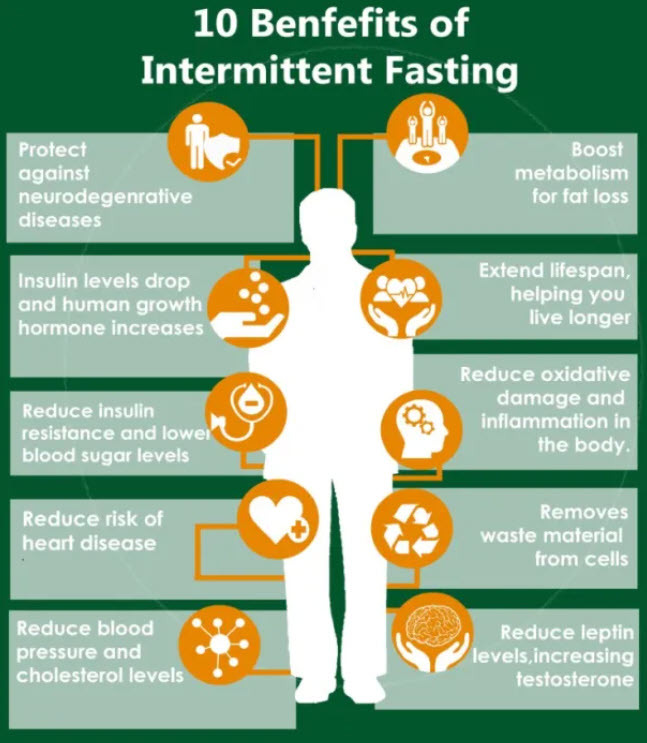 |
Intermittent Fasting For Weight LossWeight loss with Ketosis |
 |
Intermittent Fasting May Have Health Benefits Beyond Weight Loss | TODAYAccording to an article in the New England Journal of Medicine, new evidence suggests that intermittent fasting could provide many health benefits beyond |
 |
Don’t know whether to cut or bulkDon’t know whether to cut or bulk |
 |
What’s your favorite way to eat chicken?What’s your favorite way to eat chicken? |
 |
Intermittent Fasting TESTED - 30 Day Before & AfterGo to https://NordVPN.com/goalguys and use code GOALGUYS to get a 2-year plan plus 1 additional month with a huge discount. It’s risk-free with Nord’s 30-day |
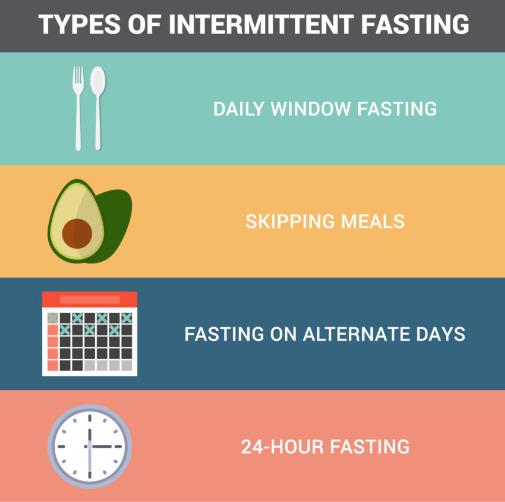 |
Intermittent Fasting For Pregnant WomenWhile intermittent fasting for pregnancy has its benefits, it can also be dangerous. Read on to learn more about the risks and benefits of.. |
 |
Intermittent Fasting and Low-Carb DietIf you want to lose weight, try combining intermittent fasting with a low-carb diet. Both methods help you lose fat and control health conditions... |
 |
Intermittent Fasting Guide for 2022 | Doctor Mike HansenIntermittent Fasting Guide for 2022 | Doctor Mike Hansen Did you know that it's been predicted that by 2030, more than half of the U.S population will be |
 |
How to do Intermittent Fasting: Complete GuideJoin my Email List: https://www.thomasdelauer.com Check out Thrive Market: http://ThriveMarket.com/Thomas Follow More of My […] |
 |
Intermittent Fasting Myths - Top 5 | Jason FungI cover the most important myths about intermittent fasting and why they are not true. Check out my website at https://www.doctorjasonfung.com and blog at |
 |
How Autophagy WorksAutophagy is a dynamic degradation system that promotes tumor survival. It also promotes the growth of established tumors and facilitates metastasis. .. |
 |
How Intermittent Fasting Affects Your Body and Brain | The Human BodyStars like Beyonce and Hugh Jackman have spoken out about following intermittent fasting plans to get in shape. How does intermittent fasting work? Here's what |
 |
Intermittent Fasting 8/16You may have heard of the intermittent fasting 8/16 or 12/12 time restriction. This type of fast requires you to go without eating or drinking for.. |
 |
Intermittent Fasting For WomenSide effectsWomen who are looking for a way to lose weight can try intermittent fasting. However, there are several side effects to this type of.. |
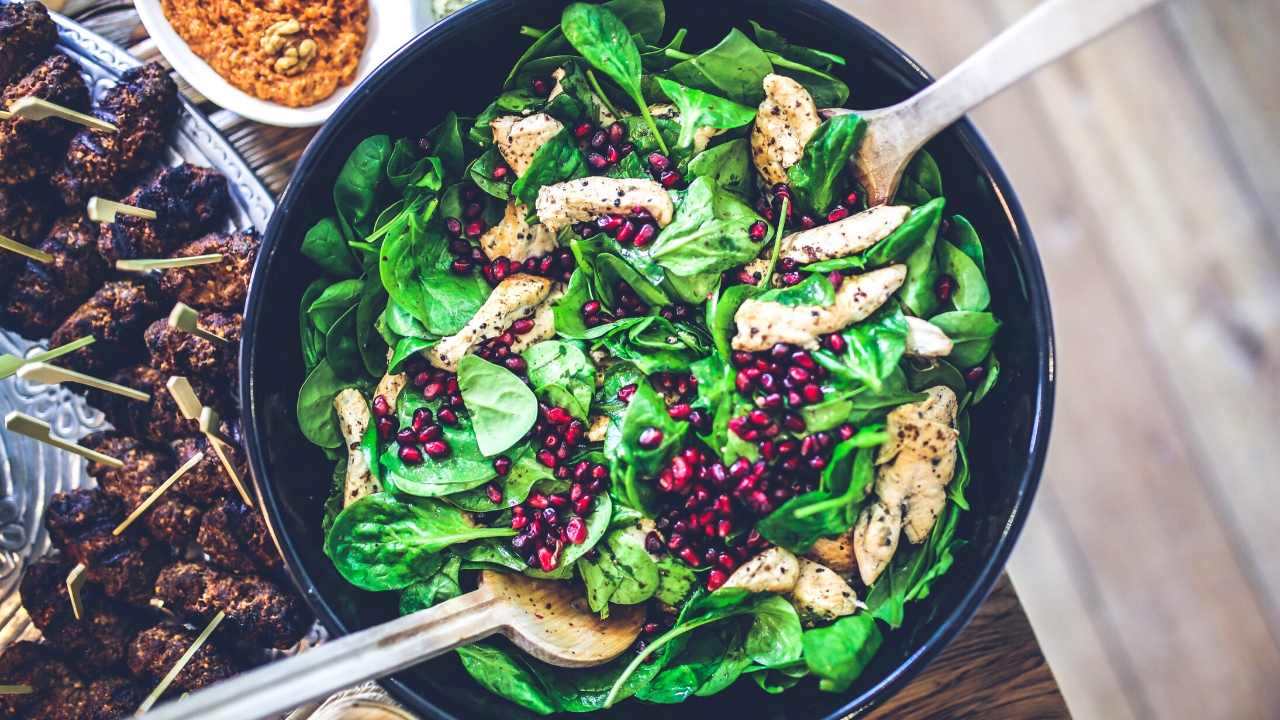 |
How Much Cholesterol in a DayHow much cholesterol in a day depends on a number of factors. While dietary cholesterol is not necessarily bad, excess intake can lead to serious.. |
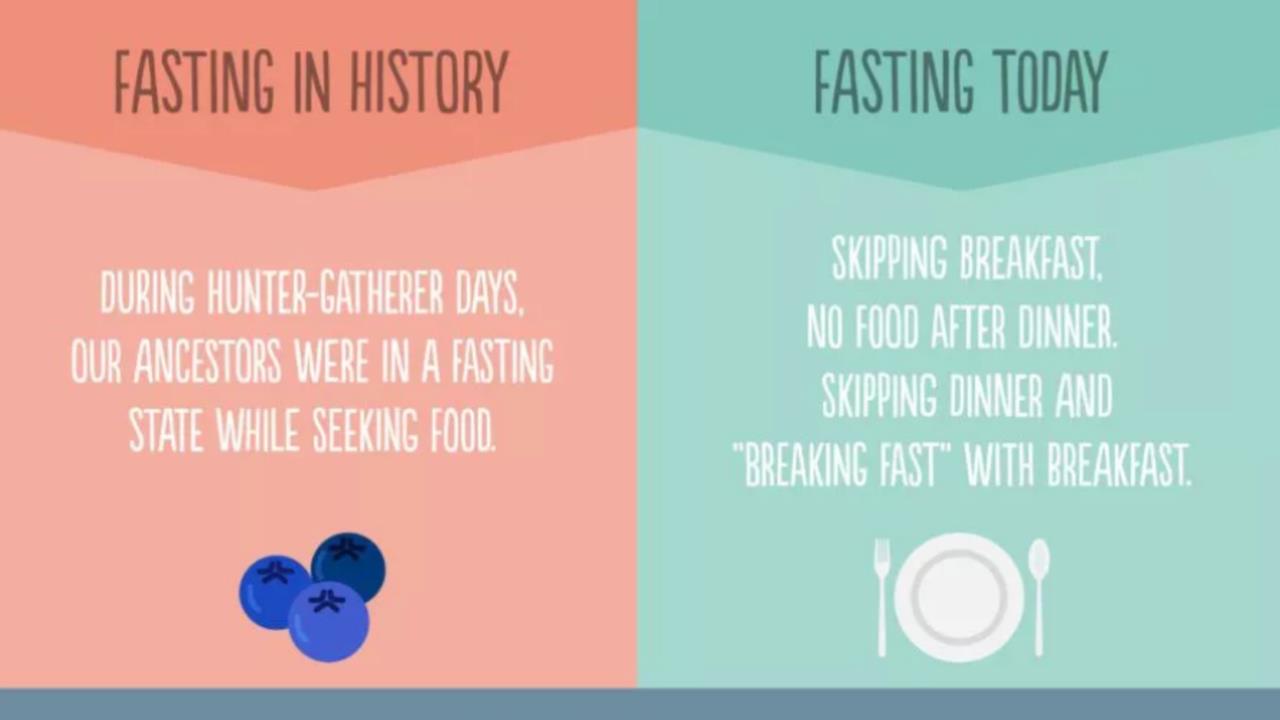 |
Is Skipping Breakfast Right For You?Skipping breakfast has a number of benefits, including the ability to lose weight, improve training performance, and increase growth hormone levels... |
 |
The Benefits of the AIP DietThe AIP diet has a number of health benefits. Besides reducing inflammation and weight, this diet also provides essential nutrients. These include.. |
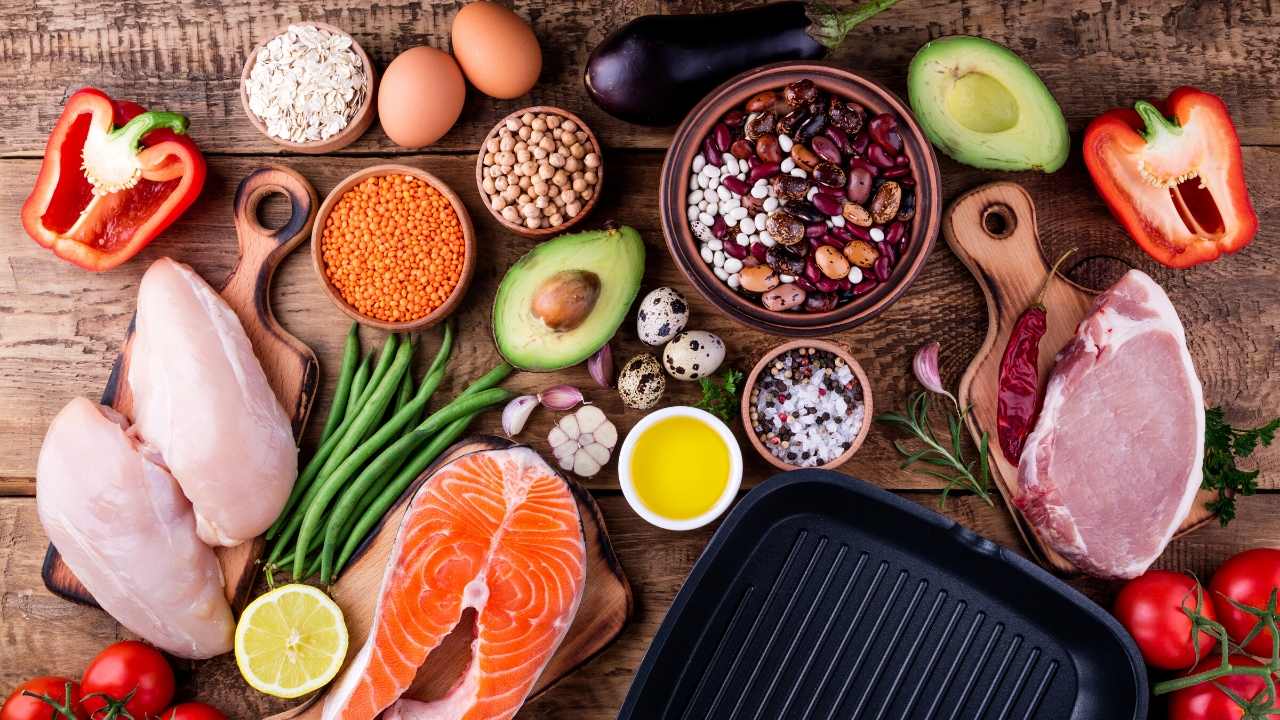 |
Is Eating Only One Meal A Day a Good Idea?Eating only one meal a day is not a good idea, and it is not sustainable for most people. It may help some people lose weight, but for the average.. |
 |
What Are the Side Effects of Water Fasting?Water fasting is a form of fasting, where a person consumes only water during a period of time. It may be undertaken for medical reasons or for.. |
 |
Intermittent Fasting and Blood PressureResearchers have discovered that intermittent fasting may have positive effects on blood pressure. Blood pressure affects the risk of heart disease,.. |
 |
Intermittent Fasting For Weight LossAll you need to know about Intermittent fasting and weight loss |
 |
Is it Okay to Drink Coffee on Intermittent Fasting?You might have heard that it's okay to drink black coffee on intermittent fasting. But did you know you can also enjoy a cold brew? What about.. |
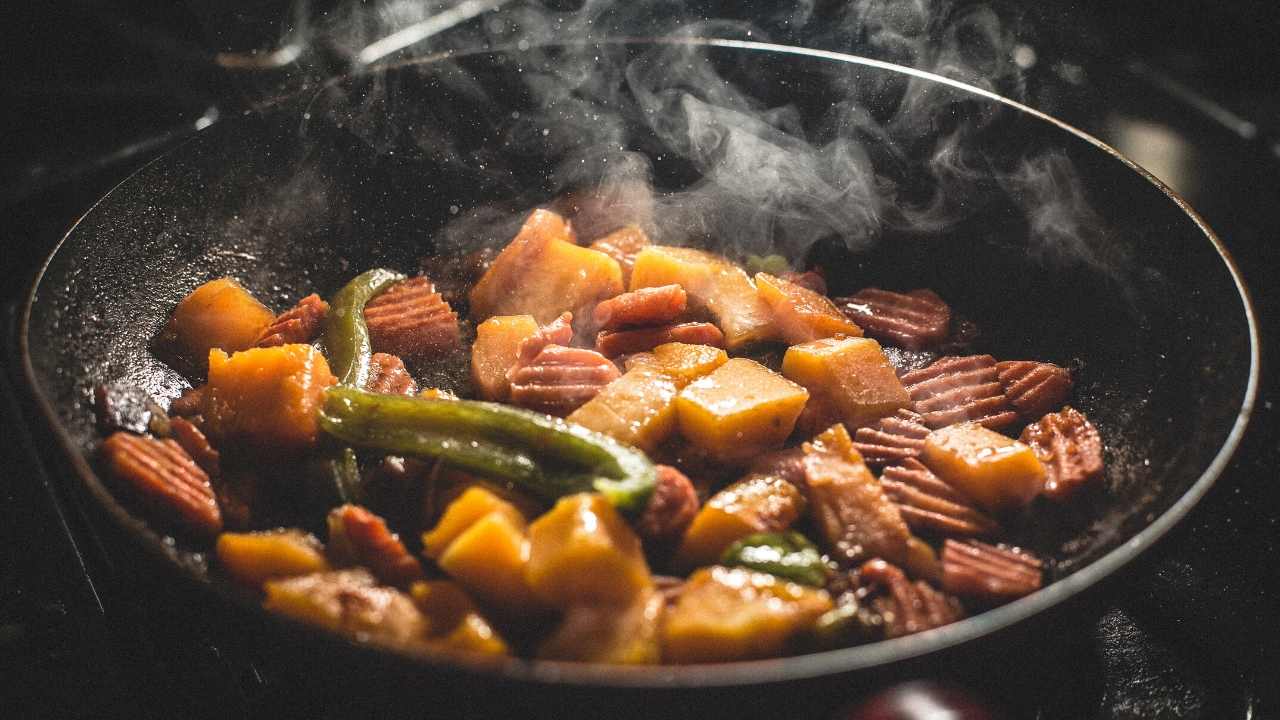 |
How to Start Fasting 48 HoursIf you are considering fasting 48 hours, here are some of the benefits. There are also a few precautions you should keep in mind before you begin. In |
 |
A Psoriasis Diet Can Help Reduce the Severity of Your PsoriasisA psoriasis diet should consist of eating foods that are rich in vitamin A and C, as well as avoiding sugars and processed foods. Avoid eating red.. |
 |
The DASH Diet to Prevent HypertensionThe DASH diet is an eating plan that was developed by the National Heart, Lung, and Blood Institute. It focuses on fruits and vegetables, low-fat.. |
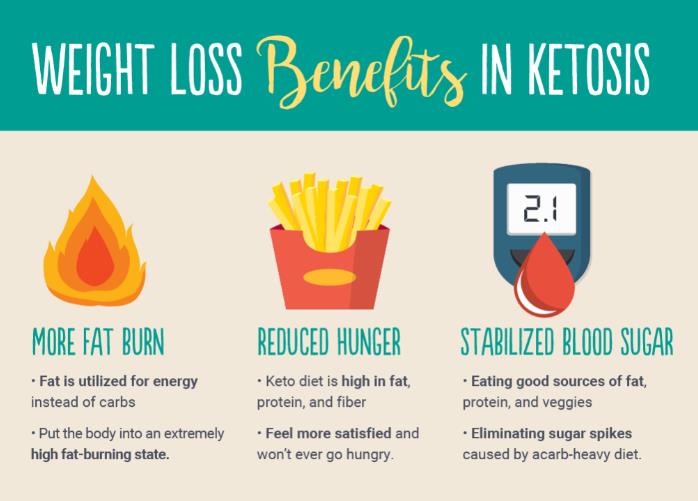 |
LIFE Fasting Tracker - LIFE Apps | LIVE and LEARNThe best, and free, intermittent fasting tracking app for iPhone and Android. Easy to use. Supports all fasting types. Fast with friends. Download for Free. |
 |
Intermittent Fasting AppsIf you're on an intermittent fasting regimen, it's important to keep track of your food and exercise intake. Several apps can help you stay on track.. |
 |
Time Restricted EatingIf you're interested in losing weight or improving your health, you may want to try Time-restricted eating or intermittent fasting. Read on to learn.. |
 |
Reactive HypoglycemiaThere are several different ways to treat reactive hypoglycemia. The first step is to reduce or eliminate your caffeine and alcohol intake. You may.. |
 |
Low-Carb Meal PlansLow-carbohydrate meal plans are based on limiting the amount of carbohydrates you eat. Instead, you replace foods that are high in carbohydrates with |
 |
Intermittent Fasting: What is it, and how does it work?Intermittent fasting involves switching between fasting and eating on a regular schedule. This type of fasting could manage your weight or even some forms of |
 |
How Autophagy WorksAutophagy is a dynamic degradation system that promotes tumor survival. It also promotes the growth of established tumors and facilitates metastasis. |
 |
The 12-Hour Fast - What Are the Benefits of a 12-Hour Fast?The 12-hour fast is a popular dietary approach that can help you lose weight. It forces your body to rely on its stored fats for energy. It has also.. |
 |
Fasting Before Working OutFasting before a workout has its advantages. Not only does it provide more energy during a workout, it can also help with digestion, which can take.. |
 |
Healthy Ways to Lose WeightLosing weight is a great way to improve your health and reduce your risk of certain conditions. It can also reduce your total cholesterol levels and.. |
 |
Intermittent Fasting 101 — The Ultimate Beginner's GuideThis is a detailed guide to intermittent fasting (IF). Studies show that it can help you lose weight, improve health and perhaps even live longer. |
 |
Top Intermittent Fasting AdvantagesThere are many advantages to intermittent fasting as a strategy for weight loss. Intermittent fasting can work with any diet... |
 |
Weight Loss (Low Carbohydrate Diets)Low carb diets have often been used throughout history for weight loss. Although sometimes called a fad, low carb diets have actually more science... |
 |
The Key Factors of Weight LossWeight gain and obesity, like any medical disease, is multifactorial. This means that there are many factors that cause weight gain... |
 |
How Doctors Lose WeightHow do doctors lose weight? For their patients, doctors often advise following standard diets, but when trying to lose weight themselves... |
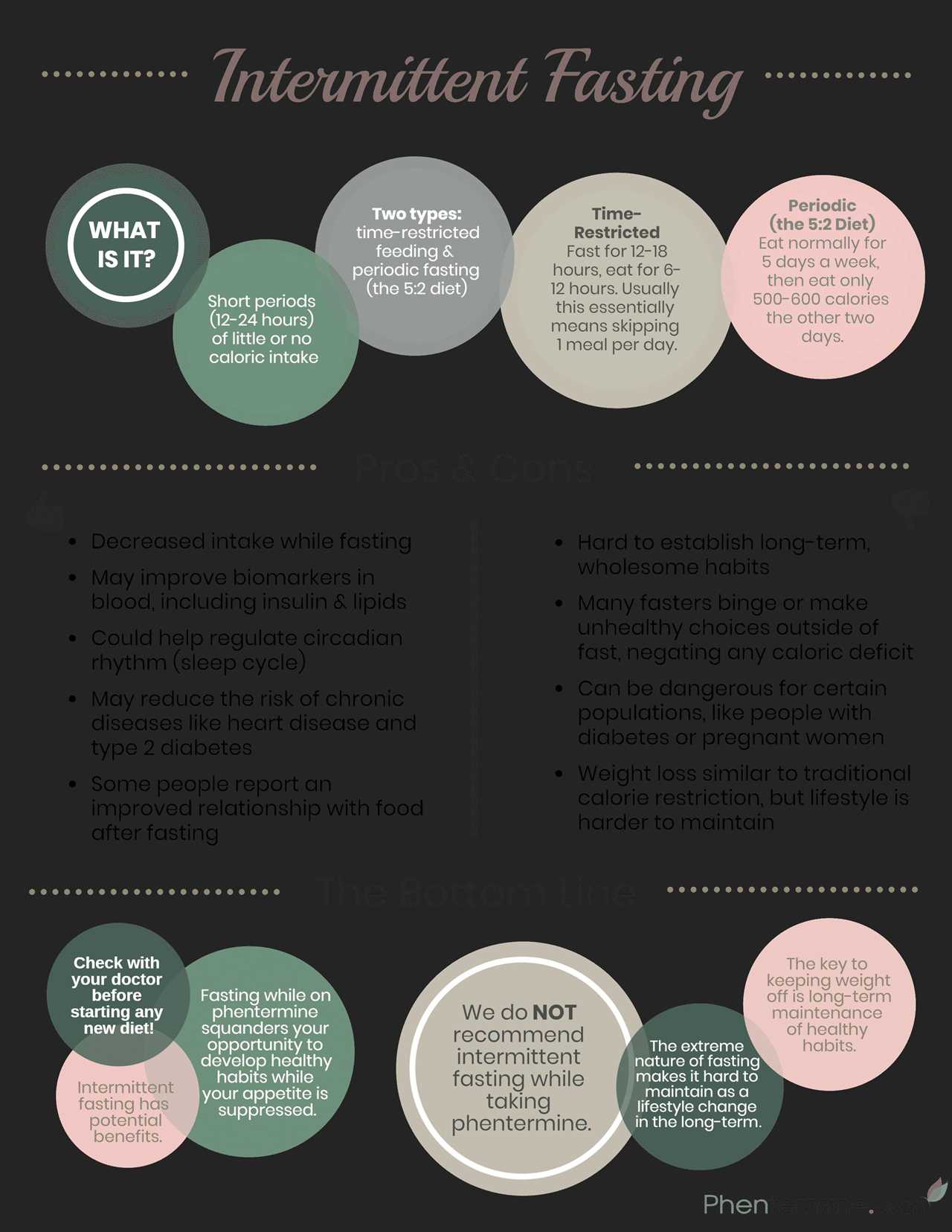 |
Is intermittent fasting good for you?Intermittent fasting isn't new, but it's gaining followers. What's the appeal? |
 |
Vacation Weight Loss PlanWhat is the best vacation weight loss plan? Most people [...] |
 |
Should I (lean-) Bulk or Cut?Should I (lean-) Bulk or Cut? |
 |
100lbs down!100lbs down! |
 |
Calculating the Maintenance calories on workout and rest daysCalculating the Maintenance calories on workout and rest days |
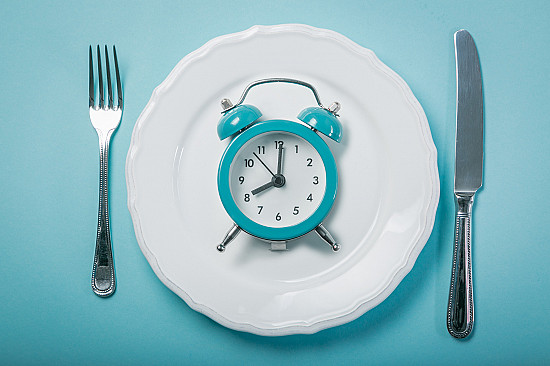 |
Intermittent fasting: The positive news continues - Harvard HealthHarvard research about Intermittent fasting ... |
 |
Rat Model: Intermittent Fasting Normalizes High Blood Pressure Induced by Harmful Intestinal BacteriaPrevious studies have shown that a harmful combination of gut bacteria can cause high blood pressure (hypertension) in humans and other animals. Having a |
 |
Your D-I-E-T Meditation PlaylistIn my TEDx talk, I suggest recasting the noxious word “diet” into D-I-E-T — a reminder to ask ourselves “Did I Enrich Today?” One of the ways we can enrich…The |
 |
Holiday Health (Damage Control)With the holidays on us, maybe your intermittent fasting schedule isn’t as rigorous as it once was. That’s not necessarily a bad thing, because social |
 |
You Got a Zero.Zero’s not been my hero. Through grade school and college, zeroes used to be something of a monster in my mind. Teachers illustrated just how bad a zero is |
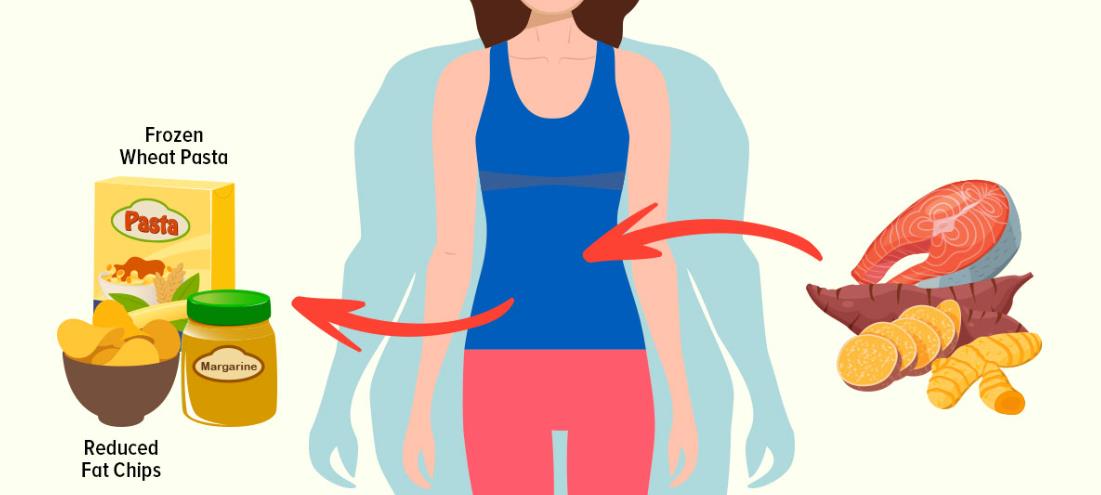 |
Six ways to do intermittent fasting: The best methodsIntermittent fasting is an increasingly popular diet option for weight loss. There are several programs, but this guide can help you find out which one is |
 |
Intermittent Fasting ExperiencesI took part in an energetic discussion of intermittent fasting experiences as part of the release of Women Action Takers Who Gained By Losing for which I wrote |
 |
How to Break a Fast: What to Eat After FastingHow to Break a Fast: What to Eat After Fasting Written by Stephen Anton PhD on May 15th, 2022 How to break a fast? This is an excellent question and one |
 |
How to Believe in Yourself: 10 Tips for Becoming Your Best SelfHow to Believe in Yourself: 10 Tips for Becoming Your Best Self Guest Post by William Anton PhD on June 12th, 2022 William D. Anton, Ph.D is a renowned |
 |
36-Hour Fast (Monk Fast): Everything You Need to Know36-Hour Fast (Monk Fast): Everything You Need to Know Written by Stephen Anton PhD on July 5th, 2022 The 36-hour fast is a challenging fast in that it |
 |
Diet A to Z: Intermittent FastingThe two-day-a-week diet: How intermittent fasting can help you lose weight and boost your health. |
 |
18/6 Intermittent Fasting: Is It the Right Plan for You?18/6 Intermittent Fasting: Is It the Right Plan for You? Written by Stephen Anton PhD on November 29th, 2022 Intermittent fasting has become one of the |
 |
20/4 Intermittent Fasting: The Pros and Cons of a Longer Fast20/4 Intermittent Fasting: The Pros and Cons of a Longer Fast Written by Stephen Anton PhD on January 25th, 2023 There are so many different approaches to |
 |
Everything you need to know about the OMAD dietThe one meal a day (OMAD) diet is a type of time-restricted eating intermittent fasting protocol that involves—you guessed it—eating just one meal a day and |
 |
The ultimate guide to intermittent fasting 20/4When we’re trying to lose weight, we usually think about what we can and can’t eat. Bye-bye beer and burgers. Helloooo carrots and kale! But with intermittent |
 |
The Flexitarian Diet — A Beginner’s Guide by SimpleFrom workouts to working hours, most of us enjoy a little flexibility. So it’s no wonder that when it comes to what we eat, a little wiggle room goes a long |
 |
The Mediterranean diet for weight lossPeople have loved the Mediterranean diet for many years. It’s not a “weight loss diet,” per se. It’s just how people in places close to the Mediterranean Sea |
 |
The complete guide to 18/6 intermittent fastingIntermittent fasting (IF) regularly shows up as many health-seekers’ go-to eating plan, and for good reason. Research suggests that it could have a profound |
 |
The Impact of Different Drinks during Intermittent Fasting: Benefits, Downsides, and ResearchA common dietary strategy called intermittent fasting (IF) alternates between periods of fasting and eating. Apart for water, black coffee, and tea, people |
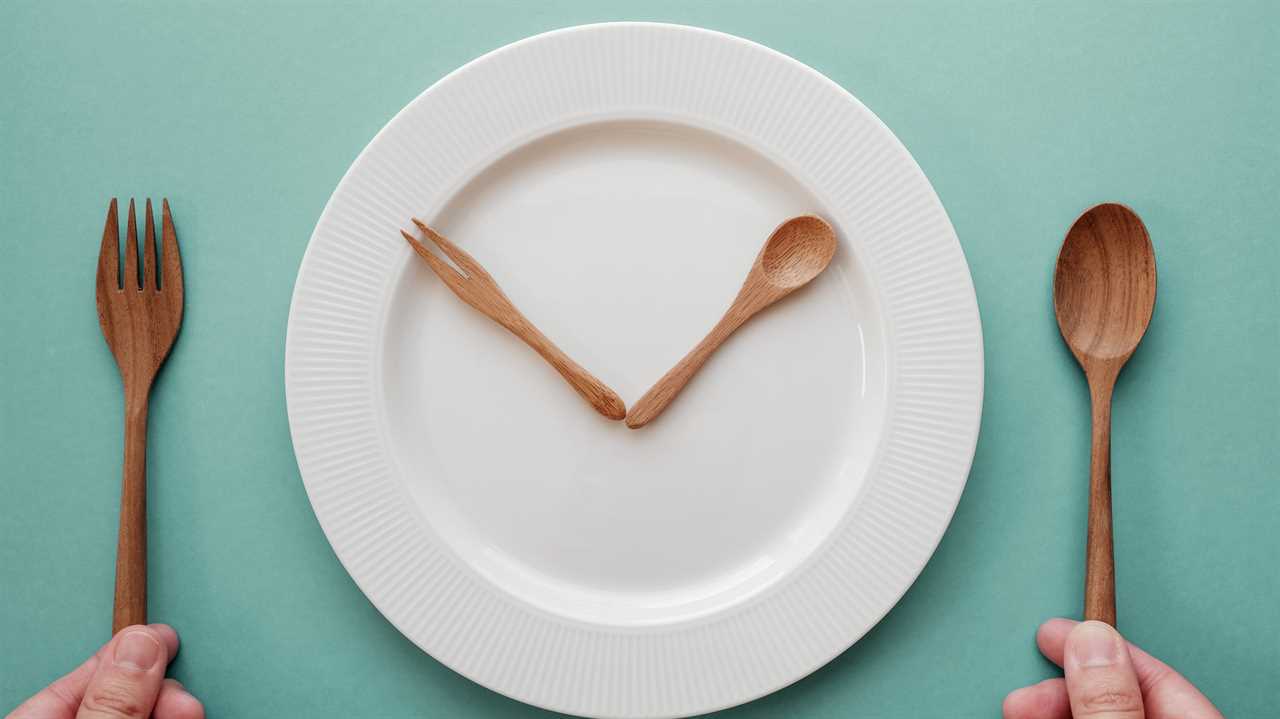 |
Intermittent fasting (IF): Your complete guide - Diet DoctorIntermittent fasting is popular, effective, and easy. This guide tells you how to get started with a successful intermittent fasting routine. |
 |
Intermittent Fasting and Muscle Gain: Benefits, Downsides, and ResearchA common dietary strategy for people who want to increase their muscle mass while also aiding fat loss is intermittent fasting (IF). Although IF has mostly |
 |
Burning Belly Fat: Intermittent Keto vs Intermittent Fasting – Which is More Effective?Visceral fat, commonly referred to as belly fat, is the fat that builds up around the midsection and is associated with a number of health issues, such as |
 |
When you’re ill, is intermittent fasting safe? Precautions and considerations.Those who want to reduce weight, get healthier, or even live longer are increasingly following the trend of intermittent fasting. Yet if you’re sick, you might |
 |
When Intermittent Fasting Stops Working: Reasons, Solutions, and EffectivenessRecently, intermittent fasting has become more well-liked as a technique to reduce weight, enhance general health and longevity, and even improve mental |
 |
5 Intermittent Fasting Methods, ReviewedIntermittent fasting comes in many shapes and forms. This article reviews its pros and cons so you can decide if it's worth a try. |

